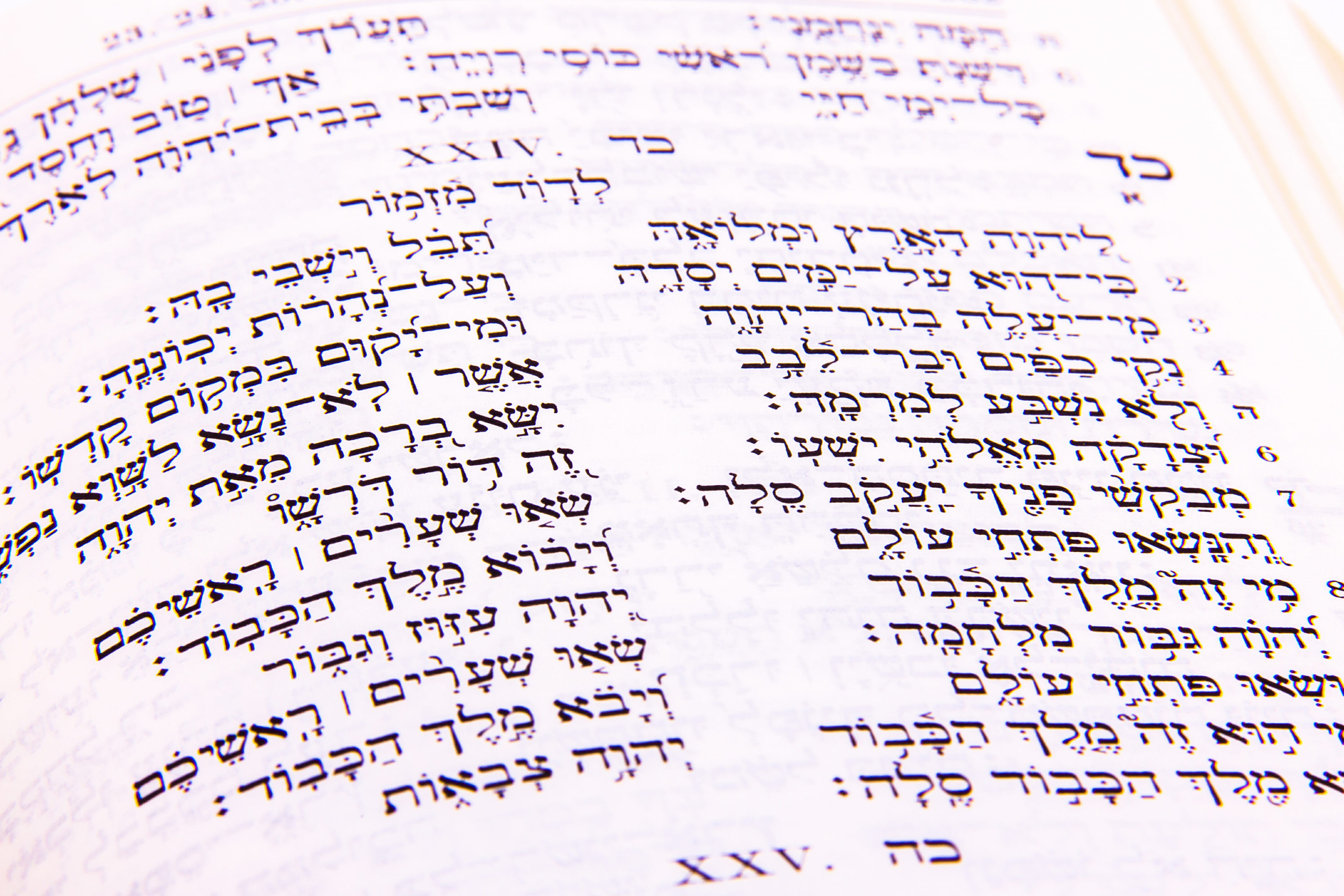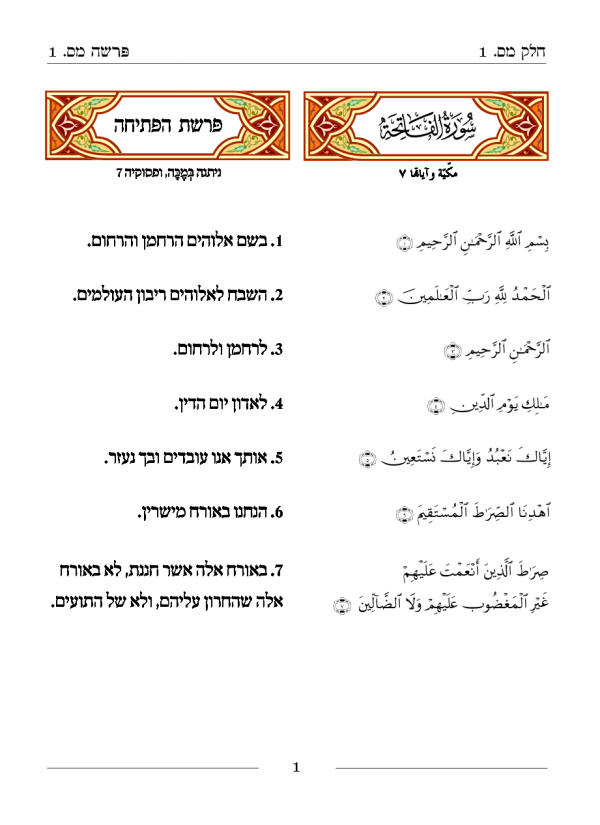The Word Elohim In The Hebrew Quran
Mohamad Mostafa Nassar
Twitter:@NassarMohamadMR
Often the missionaries try to argue that the name for God is Yahweh, and that since the word (Allah) is not etymologically related to this name, it therefore follows that Muslims worship a different deity. However, what they fail to recognise is that it is etymologically accepted that the root word of (Elohim) which is

Often the missionaries try to argue that the name for God is Yahweh, and that since the word (Allah) is not etymologically related to this name, it therefore follows that Muslims worship a different deity. However, what they fail to recognise is that it is etymologically accepted that the root word of
(Allah) is not etymologically related to this name, it therefore follows that Muslims worship a different deity. However, what they fail to recognise is that it is etymologically accepted that the root word of (Elohim) which is eloh, is indeed:
(Elohim) which is eloh, is indeed:
[…]a cognate form of the word allah, the designation of deity used by the Arabs.1
This cannot be better exemplified than to see it in a Hebrew translation of the Qur’an.
Some explanation of the history behind the Hebrew translation of the Quran is needed. The first translation of the Qur’an into Hebrew was completed by a German Jew named Hermann Reckendorf in 1857. In 1936, a new translation by Joseph Joel Rivlin (Yosef Yo’el Rivlin) was published. Another translation, this one by Aharon Ben Shemesh, was released in 1971. The most recent was produced by Uri Rubin in 2005 and is published by Tel Aviv University Press.
Examples of Elohim In The Hebrew Quran
The following are some examples from the Hebrew translation of the Qur’an by Joseph Joel Rivlin, whereby the word “elohim” is consistently translated from the Arabic “allah” from the Qur’an in its original Arabic.
Quran 1:1
This appears in Qur’an 1:1 (Sura’ al-Fatiha) of the Hebrew translation2:
Both translate into English as: “In the name of God, Most Gracious, Most Merciful.”3
Compare it with the very same verse in the Arabic Qur’an:
Apart from the example given above, we would like to present more examples from the Hebrew translation of the Qur’an, which uses the word Elohim and Eloh. Note that the Hebrew translation always renders Ilah and Allah as Eloh and Elohim, respectively.
Quran 3:2
The following appears in Qur’an 3:2 of the Hebrew translation:
The original Arabic rendering of Qur’an 3:2 is:
which translates into English as: “God! There is no god but He, the Living, the Self-Subsisting, Eternal”.
Quran 3:18
The next image appears in Qur’an 3:18 of the Hebrew translation:
The original Arabic rendering of Qur’an 3:18 would be:
This translates into English as: “There is no god but He: That is the witness of God, His angels, and those endued with knowledge, standing firm on justice. There is no god but He, The Exalted in Power, The Wise”.
Quran 6:1
This last example is from Qur’an, 6:1 of the Hebrew translation:
The Arabic from Qur’an, 6:1 is:
The English translation is: “Praise be to God, Who created the heavens and the earth and made the darkness and the light….”
Conclusions
The similarities are so obvious that it can no longer be denied — in the face of this linguistic evidence — that Elohim is indeed related to the word Allah, as both Hebrew and Arabic are sister languages in the Semitic family. Much like how there are examples of Allah in the Arabic Bible, the above examples will demonstrate that there are no differences in meaning when “Allah” in Arabic and “Elohim” in Hebrew are used interchangeably.
Insha’allah, the comparisons above will help quell the doubts of those who have been duped into believing that “Muslims worship a different god” by Christian missionary propaganda, and which some missionaries had even gone so far as to say that “Allah” is the name of a moon god.
And only God knows best.